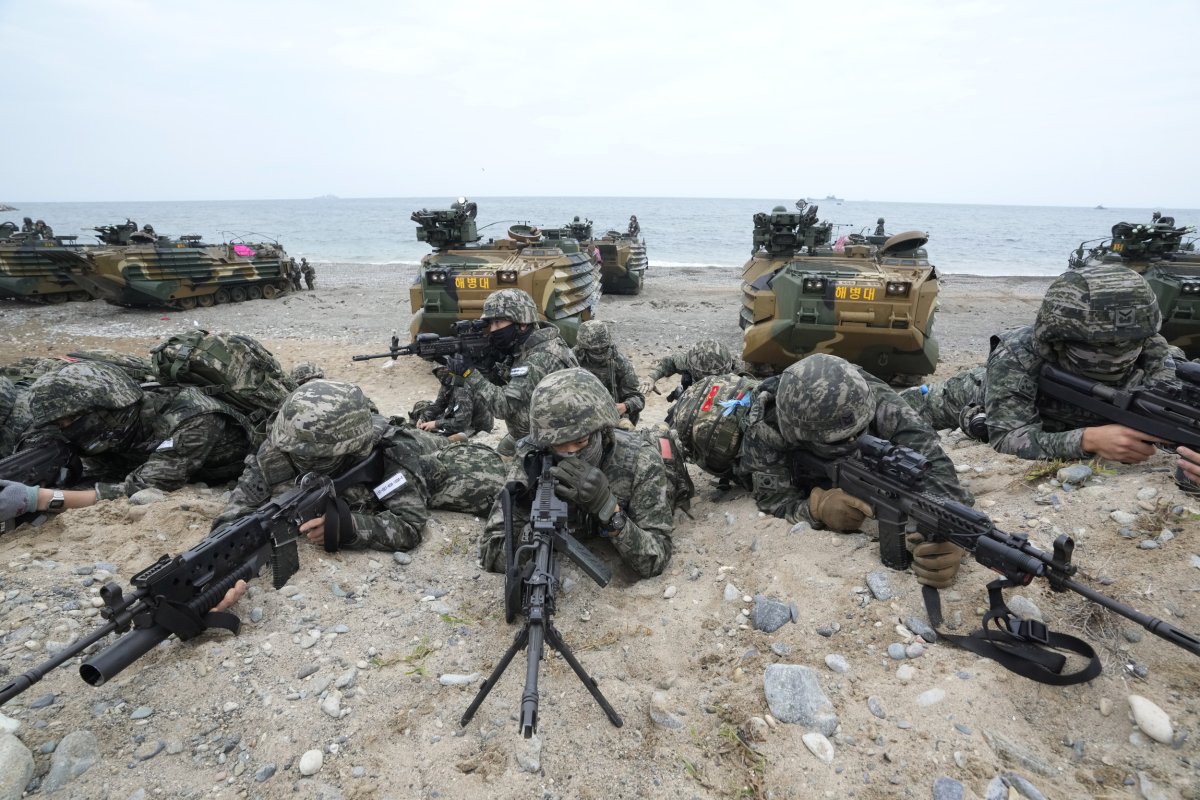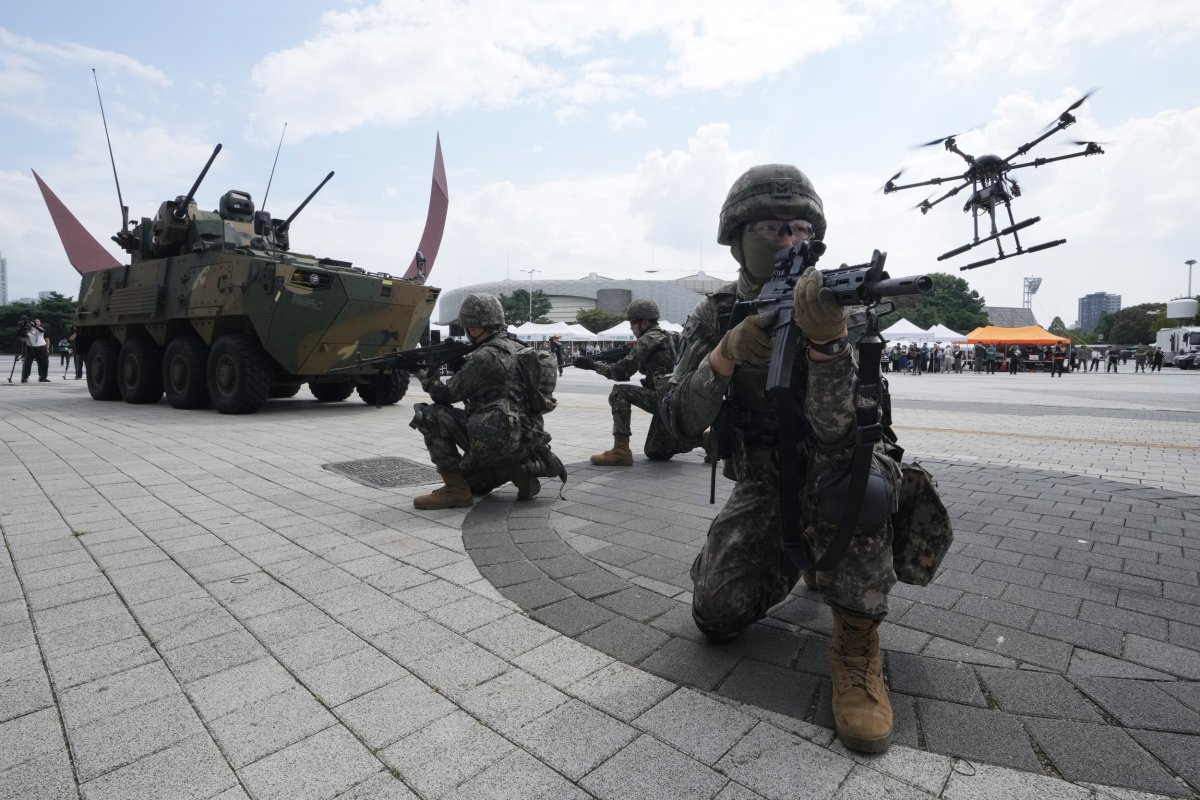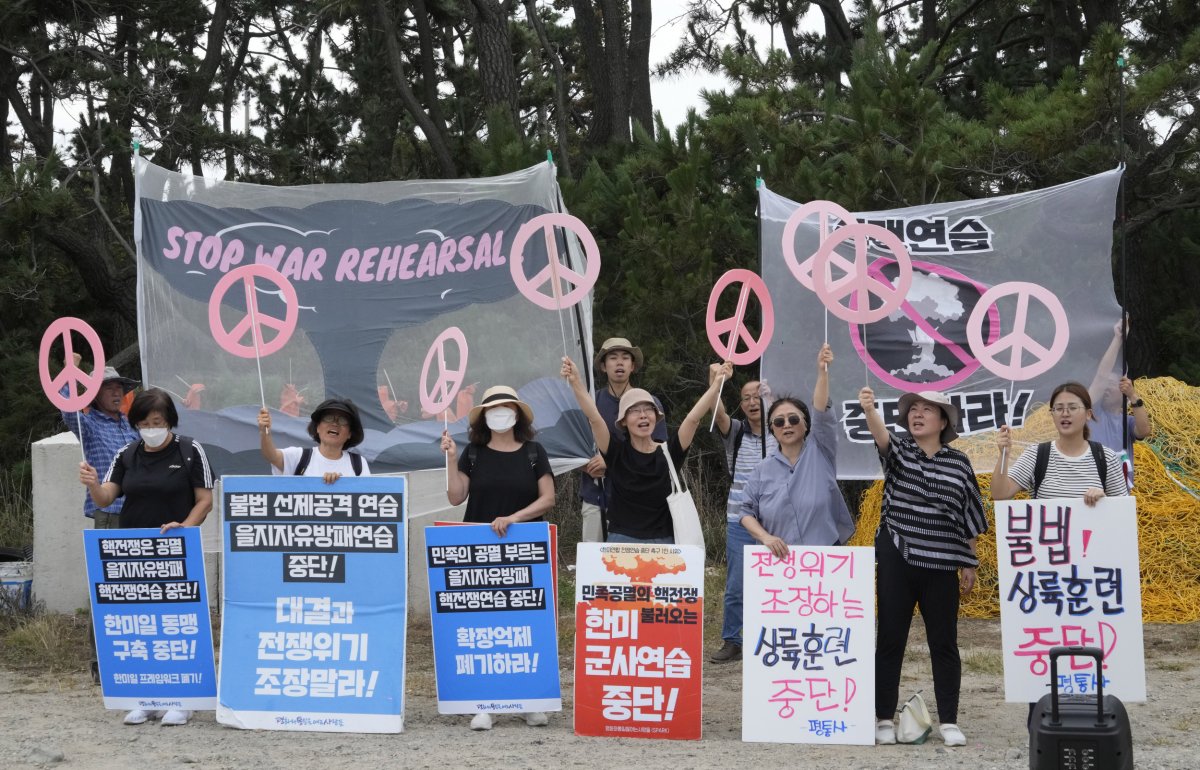North Korea on Thursday accused the United States and its South Korea ally of maximizing regional tensions by conducting provocative military drills, warning they would have to “pay a dear price.”
The U.S.-South Korea alliance has conducted two military exercises since August 19. The first one was Ulchi Freedom Shield 24, which ended on August 29, while Ssang Yong 24 was held from August 26 to Saturday. They were aimed at strengthening the combined defensive posture of the alliance.
The North Korean defense ministry warned that its armed forces will never tolerate any military moves by the U.S. and South Korea threatening regional security. “The hostile forces can never evade the heavy responsibility for escalating tension and will have to pay a dear price,” it said in a statement.
The ministry claimed that the U.S. and South Korean militaries staged all sorts of what it called “provocative” war exercises for the past two months, targeting the country in the ground, sea, and air, which included an infiltration drill by special operations forces.

AP Photo/Ahn Young-joon
“The U.S. and its followers are seriously threatening regional peace and stability while getting hellbent on unilateral military provocations.” the statement reads. It said the Korean Peninsula was exposed to constant instability because of “confrontational entities and destroyers of peace.”
“The U.S. and the ROK [Republic of Korea] are staging provocative joint military drills one after another, maximizing the military tension in the region of the Korean Peninsula.” The statement uses the official name of South Korea.
Ulchi Freedom Shield 24 reflected realistic threats such as North Korea’s missile capabilities, GPS jamming, and cyberattacks, along with lessons learned from recent conflicts, hinting at both the ongoing Russia-Ukraine war and Israel-Hamas war that involved Washington’s allies and partners.
Meanwhile, Ssang Yong 24 focused on enhancing the alliance’s capability to conduct a combined-joint forcible entry operation, including amphibious and land-based operations, in which coalition forces would swiftly neutralize key enemy facilities to terminate a hypothetical conflict scenario.

Ahn Young-joon/AP Photo
Land, naval, marine, air, and space forces from the two militaries took part in these two exercises, according to the statements released by the U.S. military. The first exercise involved 19,000 troops from the two allies while over 200 aircraft of various types conducted 2,000 sorties in five days.
The second exercise, which was amphibious-oriented, included over 13,000 personnel from South Korea and the U.S. Navy and Marine Corps, as well as the United Kingdom Commando Force. More than 20 naval vessels were featured in the exercise, including two amphibious assault warships.

AP Photo/Ahn Young-joon
In a separate news story, trash-carrying balloons from the North flew into the South for the second consecutive day. Approximately 480 trash balloons were detected since late Wednesday, the South Korean military said on Thursday, with 100 of them landing in Seoul and surrounding Gyeonggi Province.
The trash balloons are North Korea’s tit-for-tat response to anti-Pyongyang leaflets sent by defectors and activists in South Korea, with thousands of balloons having been launched since late May. The South’s unification ministry condemned the North’s move as “senseless and vulgar.”


